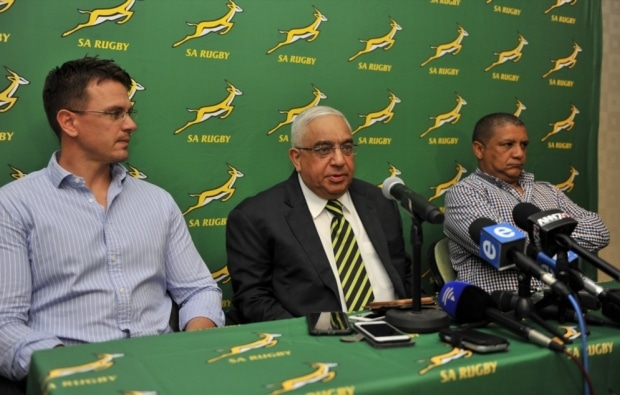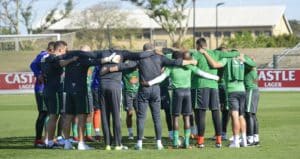A national coaching blueprint should have been formulated and enforced last November, not in the week leading up to the 2017 Super Rugby tournament, writes JON CARDINELLI.
The Springboks conceded nine tries in their 57-15 defeat to the All Blacks on 8 October 2016. In the aftermath of what was a record loss on home soil, coach Allister Coetzee admitted that significant changes would have to be made across the board for South African rugby to regain its once proud aura.
The focus shifted to the inaugural coaching indaba held in Cape Town on 19 October. While anger and disappointment followed the embarrassing loss to the All Blacks, many hoped that a gathering of South Africa’s brightest rugby minds would yield positive results. A few members of the media called it a step in the right direction after hearing Coetzee’s passionate plea for collaboration on the first morning of the indaba.
Unfortunately, the atmosphere at the second press conference of that indaba was very different. Coetzee and SA Rugby president Mark Alexander declared the meeting a success on the grounds of communication. South Africa’s coaches were, wait for it, talking to one another. This was passed off as a sign of progress.
There was plenty of talk, but would there be action? Neither Coetzee nor Alexander was able to clarify whether an overdue shift in tactics, and ultimately a shift towards managing and developing players with the national team in mind, would or could be enforced.
Instead, the media was told that there would be more indabas and meetings in the near future. They were told that SA Rugby would put forward a plan aimed at lifting the Boks and the Super Rugby franchises out of an unprecedented rut. They didn’t say when, though.
Last Wednesday, SA Rugby confirmed that a national coaching blueprint has been finalised. Alexander declared it ‘a huge milestone for South African rugby’ and assured fans and stakeholders that it would ‘put the Springboks in a better position in terms of preparation for their June series against France and the rest of the international season’.
ALSO READ: SA coaches settle on blueprint
Again, it was not so much a revelation as a statement that led to more questions. Why did it take four months to formulate a coaching blueprint? Does the SA Rugby president, and presumably the brains trust responsible for said blueprint, truly believe that the six South African franchises can make profound tactical changes a week before the Super Rugby tournament kicks off?
It’s at moments like these that you have to sigh, shake your head, close your eyes and pinch the bridge of your nose in frustration. What the hell have the SA Rugby suits been up to for the past four months?
If the first indaba went so well, and if all of the franchise coaches were on board with the idea of upskilling the players with their respective teams and the national side in mind, why weren’t these changes implemented immediately? Why weren’t the coaches instructed to shift their focus in November when pre-season training commenced?
Alexander hailed the new blueprint as a milestone, but also confirmed it will be a couple of weeks yet before a national conditioning strategy is finalised. That’s right, we could be two or three weeks into the new Super Rugby competition before the national conditioning plan is relayed to the respective franchises.
When one stops to ponder these questions, one has to wonder how Alexander can expect the Super Rugby franchises to benefit from any of the aforementioned changes, and how he can expect the Boks to be sharper and fitter in the three-Test series against France.
The optimists, and there were many in the wake of that first indaba last October, believe that SA Rugby needed to get all of the South African coaches in one room. They might say that SA Rugby has moved to alter the course of the Super Rugby franchises and the national team. They might say that the suits aren’t standing by and doing nothing.
ALSO READ: Indaba breaks new ground
Yet, the time taken to develop a national coaching blueprint has been unforgivably slow. It’s unlikely to have the desired impact in 2017, and the fact that we’re still waiting on a conditioning strategy suggests that it will be at least another year before the plan starts to show results.
Coetzee’s Boks were awful in 2016, losing eight of their 12 Tests. The early signs suggest that they won’t be much better in the 2017 season.
Photo: Ashley Vlotman/Gallo Images





